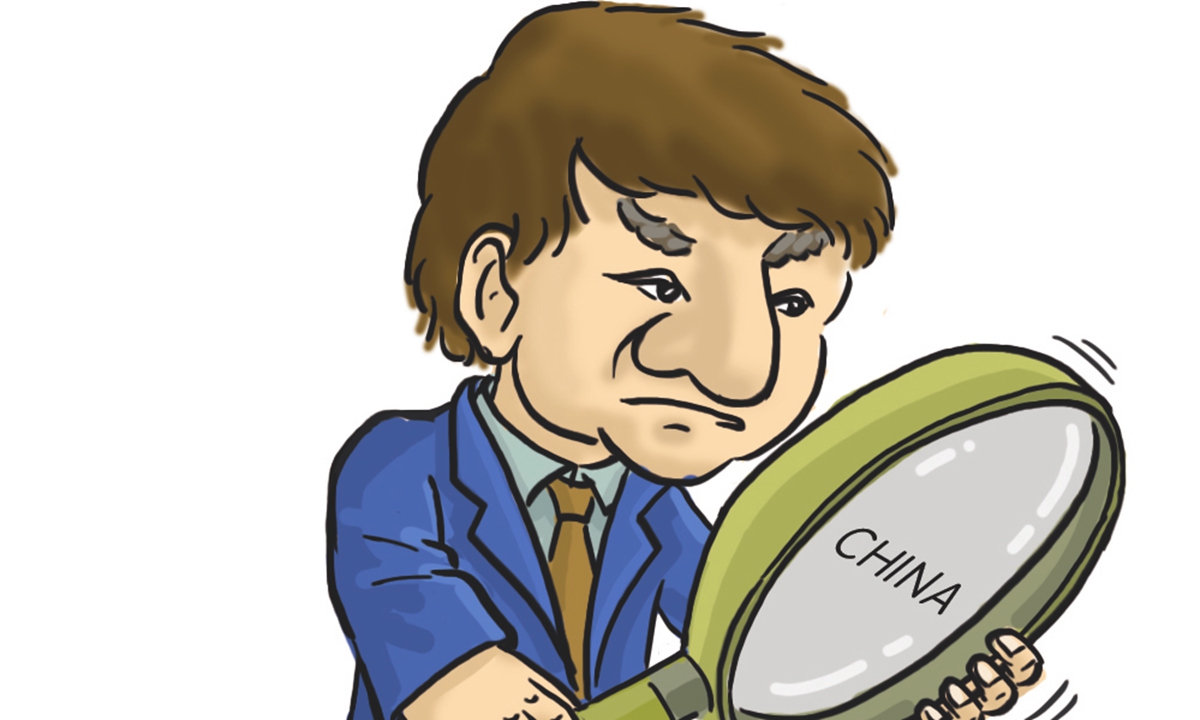Advice for overseas Chinese firms in hostile climate
By Huo Jianguo Source:Global Times Published: 2020/6/8 23:14:33

Illustration: Xia Qing/GT
Alongside the growth of China's export-oriented economy, expanding overseas investment has become an important way for enterprises to participate in international economic cooperation, as well as remaining an internal requirement for firms developing internationally.
However, with the rise of international trade protectionism in recent years, particularly affected by China-US trade frictions, Chinese firms are facing increasing disadvantages in the global investment environment.
The EU is considering expanding its censorship toward foreign takeovers, Reuters recently reported. This has been seen as an attempt to deter Chinese buyers from mergers and acquisitions in more industries in Europe. US President Donald Trump has also issued a presidential memorandum calling for tougher accounting scrutiny of US-listed Chinese companies, arguing that Chinese companies have taken advantage of US financial markets but refused to comply with US regulatory standards. The US Senate earlier also passed the Holding Foreign Companies Accountable Act, aiming to tighten regulations on US-listed foreign firms.
Under the guise of protecting American investors, the US actually intends to restrict Chinese companies' participation in US financial activities by limiting them from going public in US stock markets, and ultimately aims to suppress China's economic development.
The global capital market is a vital economic foundation for Western countries, and it was fairness, legislation and marketization that facilitated the rapid growth of the global capital market. Any move for political or discriminatory purposes would damage the market drastically and would be doomed to backfire. As COVID-19 continues to ravage the US, will Washington continue and make new conflicts in its capital markets, and blindly ignore market risks and its difficult position on the road to economic recovery?
Under such complex and changing circumstances, Chinese firms should not only attach importance to risks, but should develop dauntlessly with stronger capacities. That is the only way companies will be able to acquire a more solid stance.
For starters, Chinese firms need to closely follow changes in the international market to adjust their business strategies accordingly, paying great attention to compliance-related work and strictly abiding by local laws and regulations, so as to build a good image of Chinese companies based on principles of transparency and honesty.
Next, firms need to further shore up internal administration, putting rules in place. Employee quality and ability needs to be enhanced to adapt to complicated business environments and strict regulatory requirements.
Also, it is important for firms to learn local laws and culture - particularly those related to their business - and maintain fair communication with related regulatory institutions. They also need to remain on high alert to deal with any emergency situations that may arise.
In the meantime, governmental departments on both sides need to enhance communications. Chinese-related departments should accept and urge Chinese firms to strictly follow reasonable rules and regulations, and for unreasonable claims which go against market rules, governmental departments are responsible for opening negotiations to protect Chinese firms' legitimate rights and interests overseas.
Chinese firms also need to actively expand cooperation with Europe against the backdrop of persisting China-US trade conflict. As all countries are currently facing severe economic difficulties, China and the EU should break through the obstacles of bilateral cooperation through win-win cooperation, accelerate negotiations on the China-EU bilateral investment treaty, and expand the space for China's export-oriented economic development.
The author is a vice chairman of the China Society for World Trade Organization Studies in Beijing, and former president of the research institute of China's Ministry of Commerce. bizopinion@globaltimes.com.cn
Posted in: EXPERT ASSESSMENT